Advertisement
Somerville renters say the new MBTA stations could price them out of the neighborhood
Resume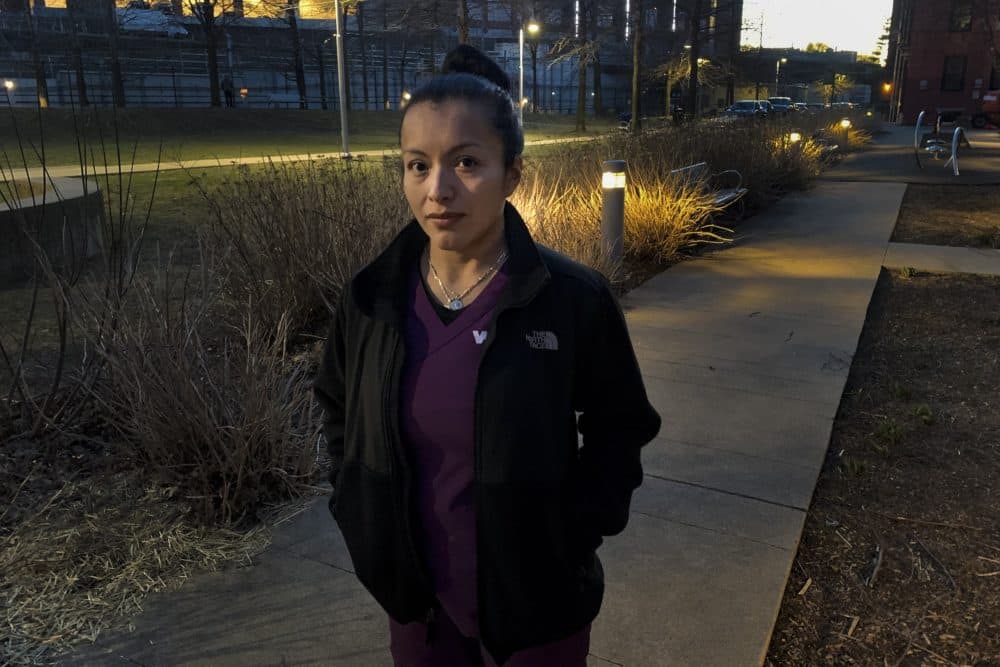
Vanessa Vela has lived in the Union Square neighborhood for nearly two decades. But the new MBTA Green Line station that opened in Somerville earlier this week heralded an uncertain future for her.
An investor recently bought her triple decker and announced plans to more than double the rent. "He sent me a very generic letter saying that we need to move out," said Vela, a veterinary technician and single mother.
Vela said the landlord didn't even offer to renew the lease, because he knew she and other tenants couldn't afford the new $3,000 rent.
Transportation advocates have pushed for the extension of the MBTA's Green Line into Somerville and Medford for decades to give residents a faster link to downtown Boston.
After many delays, they finally got their wish with a new stop that opened Monday in Union Square. The old Lechmere stop in Cambridge was remade, too. Five new Green Line stations are expected to open in coming months in Somerville and neighboring Medford, creating a transit corridor all the way to Tufts University.
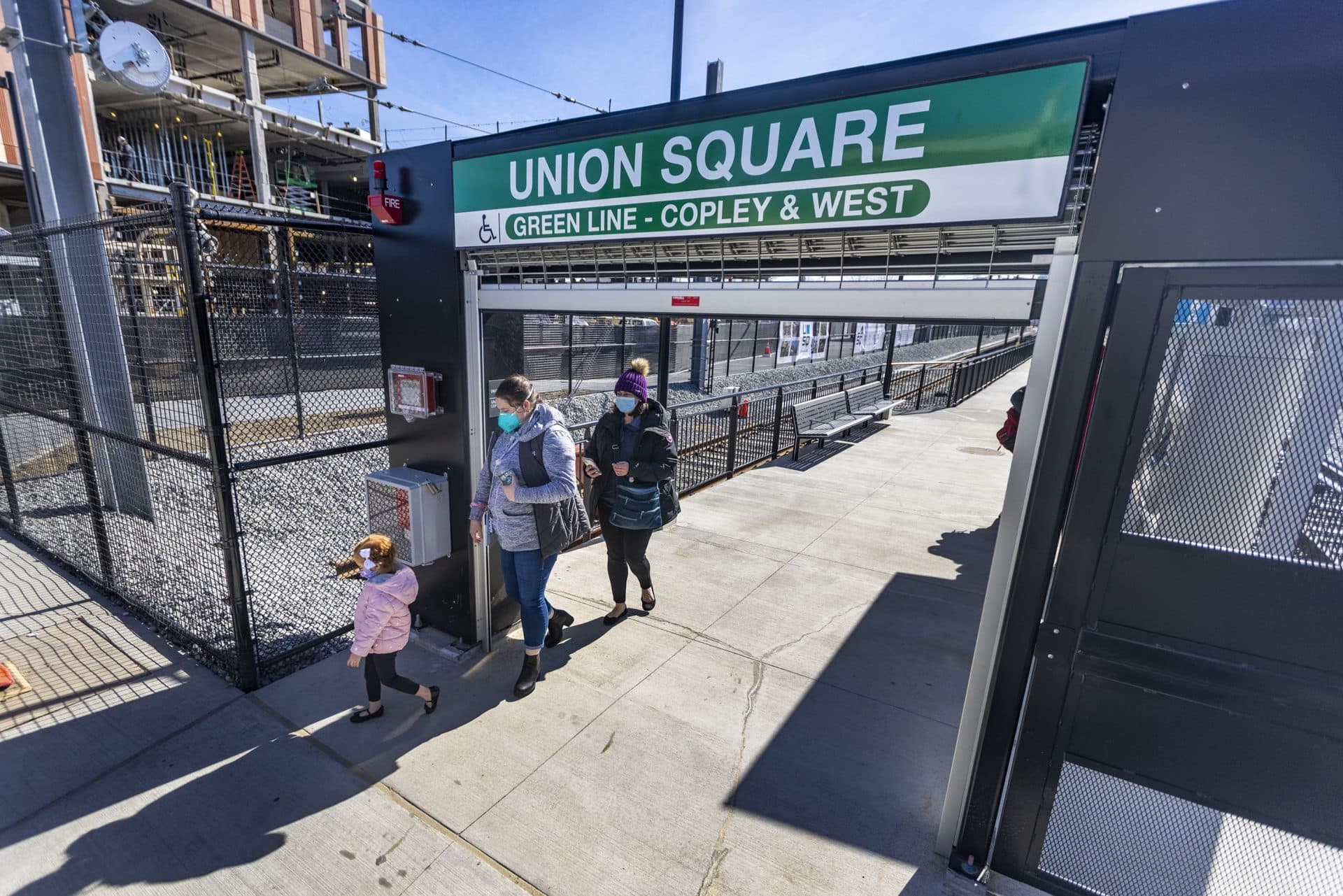
But some neighbors worry the new train stops could lead to a rush of new development that prices them out of their homes.
Jane Santos lives near Winter Hill in Somerville, a few blocks from where a new station will open later this year near Somerville High School.
"I know a lot of people who had to leave Somerville, who are moving far away because they can't afford the rent anymore," said Santos, speaking in Portuguese. "It's because of the train — 100%."
Development is already underway around Union Square. Hip restaurants serve avant-garde sushi, while a brewery and upscale condos cater to those who can afford them. And developers are in the early stages of a massive $2 billion project, with more than 2.4 million square feet of space for labs, offices and housing.
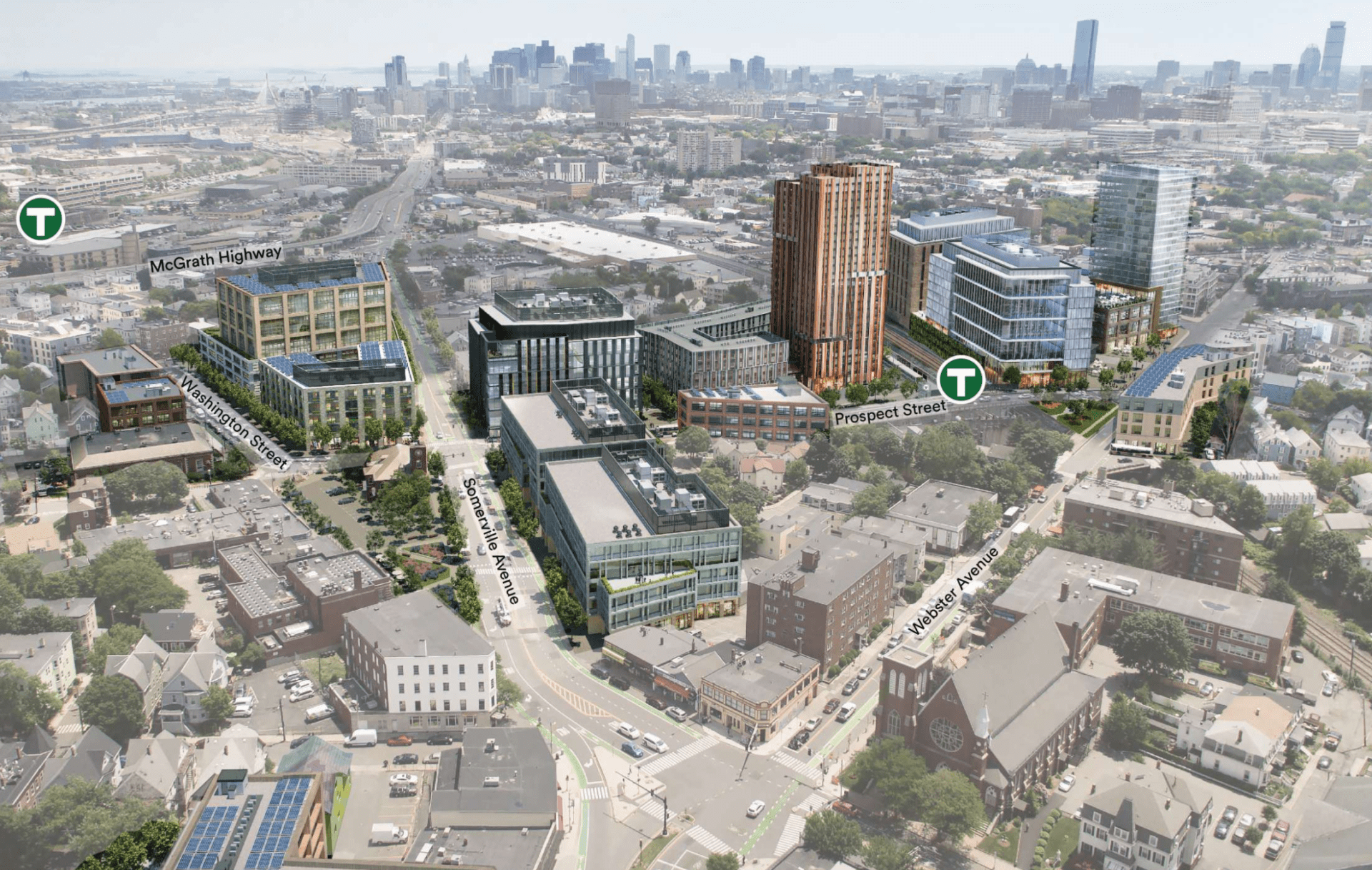
The Metropolitan Area Planning Council predicted years ago that the Green Line Extension could displace hundreds of families.
"What sometimes happens is when a transit improvement is made, the area becomes more attractive," said Tim Reardon, who studies housing for the planning council. "New folks move in who can spend more."
"And so the folks that the transit was built to serve end up not being around to benefit from those investments," he said.
Even before the Green Line's debut, many residents already struggled to remain in the city. Rents have been climbing in Somerville — like much of the rest of the Boston Area — and for years, many housing listings along the new route have touted the coming Green Line to attract new buyers.
Somerville Mayor Katjana Ballantyne, who was sworn into office two months ago, told reporters last week that the city has already been working on ways to help renters stay in their homes with the Green Line expansion.
"We try to use every tool possible," Ballantyne said, citing zoning changes, increasing the amount of affordable housing developers must build and establishing the Office of Housing Stability to help residents facing displacement. Long before she became mayor, Ballantyne has wrestled with the impact of the new MBTA stations as a city council member and in her nonprofit work.
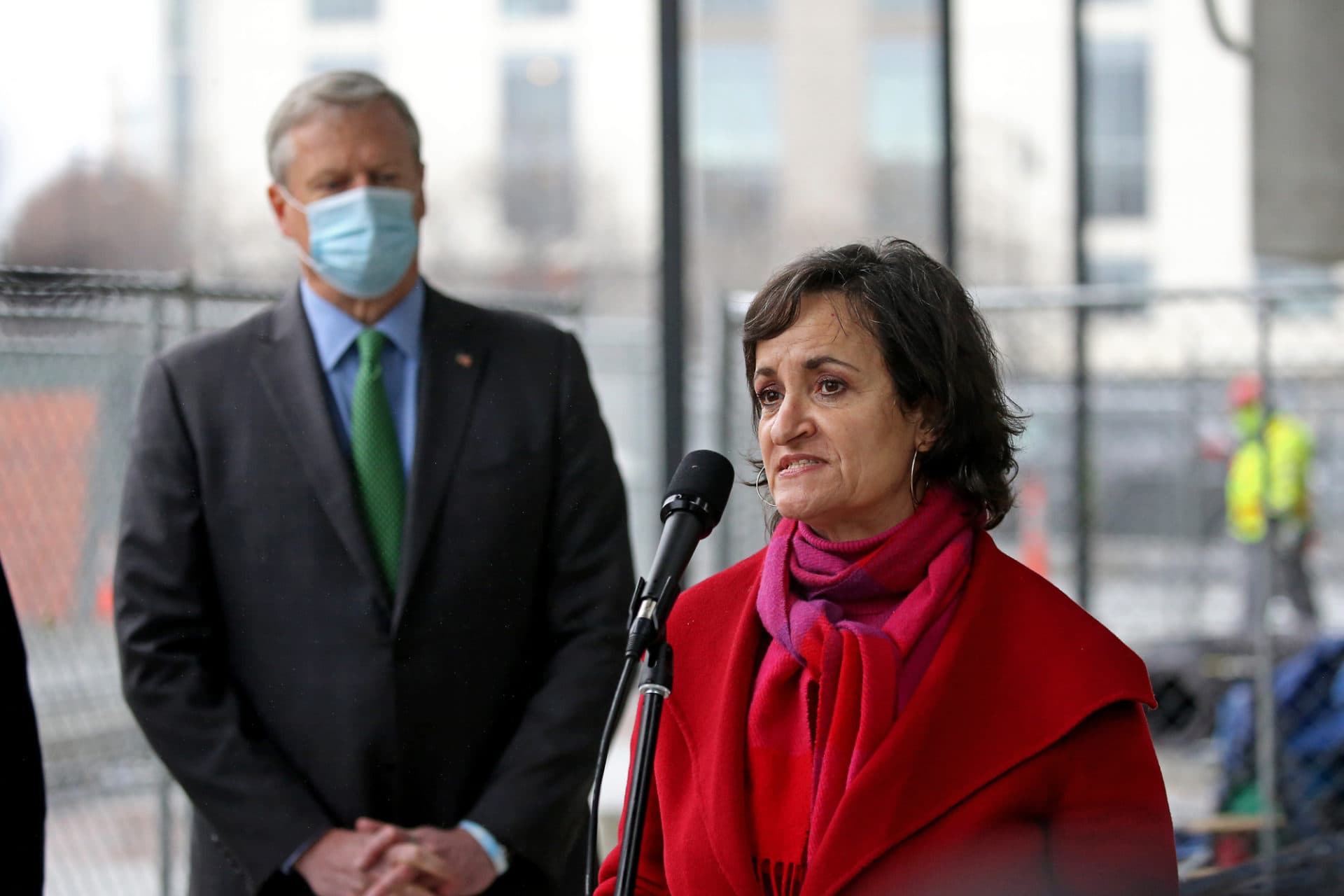
Reardon, from the planning council, credits the city with trying to address the problem.
"There is always more to do, and there are many folks who feel the city should have been doing more," Reardon said. "But I think it's safe to say the situation would have been much, much worse had the city taken a hands-off approach over the last eight years."
But Reardon said it's too early to know how many people will be pushed out of the city.
Meanwhile, local residents have mixed feelings about the new stops.
Suzanne Perry owns a multifamily house a block away from where the Gilman Square Station is expected to open in the coming months. She said she’s happy that after nearly three decades in the neighborhood, she’ll have a straight shot on the Green Line to downtown Boston.
"I'd love to see the train come in, I’d love to go downtown, going to all the places I used to go and things like that Saturday night," she said. "Go out to dinner, go down [to] Faneuil Hall or the waterfront."
Perry’s neighbor agreed, noting they're now only a couple stops away from seeing the Bruins.
But Perry worries about her neighbors who rent. And whether the neighborhood will keep its character in the face of all the development.
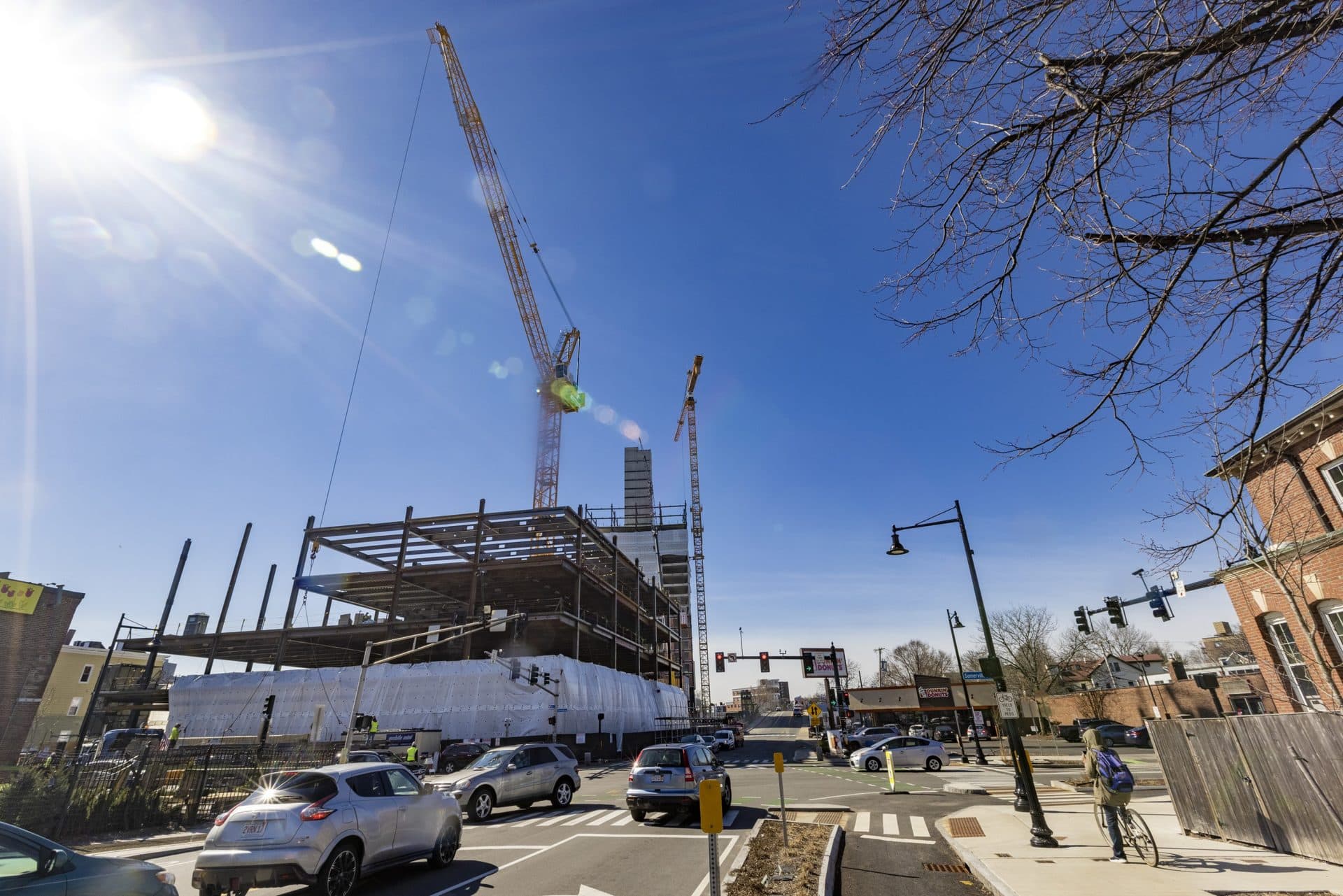
Pointing to other houses on her street, she started naming the residents who have been there longer than her. One has lived there 30 years. A 92-year-old resident in another house across the street has lived there all her life.
"I'd hate to see it change and things keep going up in value, and people can't afford it and go somewhere cheaper," she said.
Perry said she doesn’t have to sell. But with all the changes, she said she's thinking more and more of leaving Somerville to be closer to her grandkids on the North Shore.
Vela, the single mother facing massive rent increases in Union Square, may not have a choice.
But she said she still hopes to negotiate with her landlord or find another way to remain in the city, where her 17-year-old son goes to school. She said he's an honor student at Somerville High School and has lots of opportunities there.
"Somerville is all he knows since he was in kindergarten — in preschool," she said.
Vela said her landlord is Lior Rozhansky, a real estate investor who boasts that he manages a $21 million portfolio.
Rozhansky declined to talk to WBUR, but on his YouTube channel he lauded Union Square as an incredible place to invest.
“It’s gotten much more expensive over the last number of years," he said, but "with the Green Line coming in, a lot of people think prices are only going to continue going up."
That could make it harder for many residents to stay.
This segment aired on March 24, 2022.
